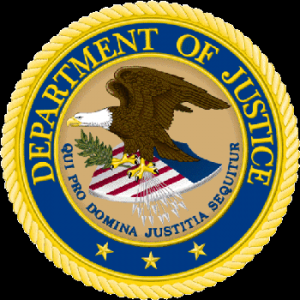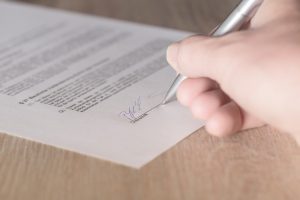Massachusetts
 Officials announced that pharmaceutical company, Ultragenyx Pharmaceutical Inc. (Ultragenyx), has agreed to pay $6 million to settle claims that it broke the False Claims Act by paying for free genetic tests and a separate fee to get marketing information about the test results.
Officials announced that pharmaceutical company, Ultragenyx Pharmaceutical Inc. (Ultragenyx), has agreed to pay $6 million to settle claims that it broke the False Claims Act by paying for free genetic tests and a separate fee to get marketing information about the test results.
Officials allege that this was done to get healthcare providers to prescribe Ultragenyx’s drug, Crysvita, and refer their patients to Ultragenyx.
Ultragenyx is a pharmaceutical manufacturer with a principal place of business in California that manufactures Crysvita.
The claims resolved by the settlement are allegations only. According to authorities, there has been no determination of liability.
Crysvita is an FDA-approved drug to treat X-linked hypophosphatemia (XLH) in adult and pediatric patients six months of age and older. XLH is a rare inherited disorder characterized by low levels of phosphate in the blood, which can lead to weak bones and, in many instances, may require a genetic test to diagnose it definitively.
 Ultragenyx understood that, in some cases, a positive genetic test for a genetic mutation consistent with XLH would be required for an insurer (including Medicare or Medicaid) to pay for a patient’s prescription for Crysvita, or for a healthcare provider (HCP) to make a definitive diagnosis of XLH and prescribe Crysvita.
Ultragenyx understood that, in some cases, a positive genetic test for a genetic mutation consistent with XLH would be required for an insurer (including Medicare or Medicaid) to pay for a patient’s prescription for Crysvita, or for a healthcare provider (HCP) to make a definitive diagnosis of XLH and prescribe Crysvita.
Thus, Ultragenyx entered into an arrangement with a genetic testing laboratory (Laboratory), whereby Ultragenyx paid the laboratory to conduct genetic tests at no cost to HCPs or patients and provide the results to the HCP.
Ultragenyx referred to this program as its “sponsored” XLH testing program. And, Ultragenyx sales personnel discussed the XLH testing program with HCPs and delivered order forms for the tests to HCP offices.
 Ultragenyx separately paid the laboratory to provide the test results to Ultragenyx, including the name of the HCP who ordered the test, a de-identified patient ID number, the date the test was ordered, and—once ready—the test result itself (collectively, Results Reports).
Ultragenyx separately paid the laboratory to provide the test results to Ultragenyx, including the name of the HCP who ordered the test, a de-identified patient ID number, the date the test was ordered, and—once ready—the test result itself (collectively, Results Reports).
Ultragenyx used the results reports, in part, for marketing purposes to find potential Crysvita patients and their HCPs.
Until April 2022, Ultragenyx received results reports and disseminated this information to its sales force with instructions to make sales calls for Crysvita to HCPs who ordered a test or, in particular, who had a patient with a positive test result. Ultragenyx’s sales force followed up with HCPs regarding test results.
“The FBI and its partners will not stand by when a pharmaceutical company illegally takes advantage of our health care system,” said Executive Assistant Director Timothy Langan of the FBI’s Criminal, Cyber, Response and Services Branch. “Those who engage in activity that violates the False Claims Act must face the consequences of their actions. As we strive to protect the American people, we will not stop working to combat healthcare fraud.”
The United States contends that, as a result of these actions, Ultragenyx caused the submission of false claims to Medicare and Medicaid by paying kickbacks:
1) to beneficiaries in the form of free genetic tests to induce their purchase of Medicare or Medicaid-reimbursed Crysvita.
2) to the laboratory for the results reports to induce the referral to Ultragenyx of HCPs to whom Ultragenyx could market Crysvita.
 As part of the settlement, Ultragenyx admitted and accepted responsibility for certain facts that provided the basis of the settlement.
As part of the settlement, Ultragenyx admitted and accepted responsibility for certain facts that provided the basis of the settlement.
“Kickbacks, in whatever form, have no business in our federal healthcare system” said Acting U.S. Attorney Joshua S. Levy for the District of Massachusetts. “We are always on the lookout for financial kickbacks that can improperly influence medical decisions, undermine patient care and cause waste to federal healthcare programs. As medical practices evolve, our office is committed to ferreting out improper financial kickbacks of any permutation.”
Of the total $6 million recovery, approximately $5.8 million constitutes a recovery for Medicare and the federal share of Medicaid, and approximately $200,000 constitutes a recovery for State Medicaid programs.
The whistleblower will receive approximately $1.07 million from the federal portion of the recovery.
This matter was handled by Senior Counsel for Health Care Fraud Augustine Ripa and Assistant U.S. Attorneys Brian LaMacchia and Diane Seol for the District of Massachusetts.

